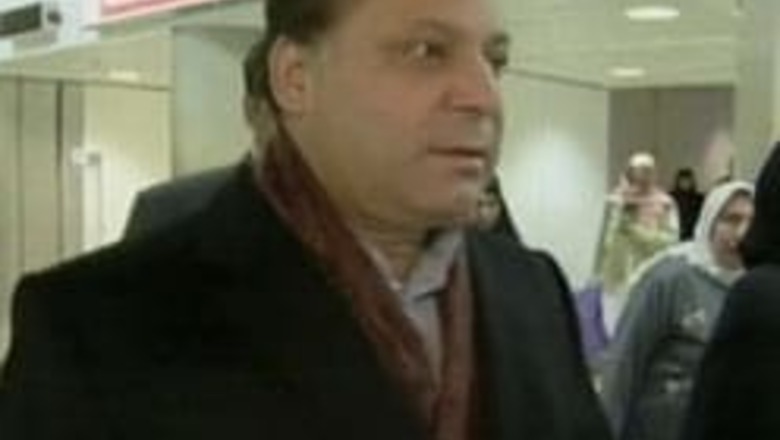
views
Islamabad: Former prime minister Nawaz Sharif in his election manifesto has promised to probe the Kargil "misadventure" that he says brought "bad reputation" to Pakistan.
Truth and Reconciliation Commission will be established that "shall examine and identify the causes and fix the responsibility for the Kargil crisis of 1999", says the Pakistan Muslim League-Nawaz (PML-N) manifesto, which was released on Friday.
Sharif has been maintaining that the then army chief, Pervez Musharraf, had not informed him about the armed intrusion into Indian territory in the summer of 1999 that led to a war-like situation between the two nuclear-armed nations.
According to official figures 527 Indian troopers, including 26 officers, were killed in the bloody conflict in the Kargil district of Jammu and Kashmir when Indian troops fought Pakistan-based militants who had crossed the icy frontier.
The former prime minister in 2003, when he was exile in Saudi Arabia, claimed that that more than 4,000 Pakistani troops and officials were killed in the clash, which was stopped after the US intervention following a meeting between Sharif and the then American president Bill Clinton in Washington.
Sharif in his manifesto claimed that frequent military interventions had done a colossal damage to the integrity and solidarity of the country.
As a consequence, Pakistan failed to achieve political stability, sustained economic growth and a clear sense of national solidarity, said Sharif, who has been personally barred from contesting the January 8 polls but his party has fielded candidates throughout the country.
The PML-N, if voted to power, will undo many of the steps taken by President Pervez Musharraf, which also include amendments in the constitution, the manifesto stated.
The PML-N manifesto is largely anti-Musharraf and pledges to restore the country's political and social status to the pre-October 1999 position, when army took over after toppling Sharif's government in a bloodless military coup.
The manifesto also promises to restore 60 judges of the Supreme Court and high courts who were sacked after the November 3 emergency and proclamation of Provisional Constitutional Order.
"The three main pillars of a sustainable democratic order are: a sovereign parliament, an independent judiciary and an independent election commission. All the three institutions have been greatly weakened in the past eight years," says the manifesto.
"In these eight years, the army has been in control of almost all the vital economic sectors of the country and most important positions have now been occupied by retired or serving officers," he said.
In the manifesto, Sharif has also tried to win the army's support by repeating what the incumbent Army Chief Gen. Ashfaq Kayani had earlier said: "2008 will be the year of restoration of army's image."
"We will restore the army's image and credibility in the eyes of our own people and international community," he said.
Sharif said Musharraf, for the last eight years as an army chief, wanted to perpetuate his hold on power but the opposition parties and a civil society movement led by lawyers forced him to shed his uniform.
Musharraf was sworn as civilian president November 29 after he quit the post of army chief.















Comments
0 comment